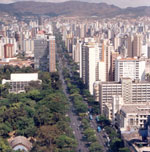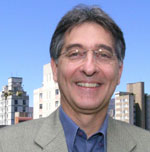
Belo Horizonte, Brazil's fourth-largest city

FRONT PAGE
About us

The 2010 results
The 2010 project
The 2010 finalists
Code of Ethics
The World Mayor Prize

The 2008 results
The 2008 project
The 2008 finalists
The World Mayor Award

The 2006 results
Methodology
The 2006 finalists
The World Mayor Award
Dora Bakoyannis congratulates John So
With Mayor of Amsterdam
With Mayor of Harrisburg
With Mayor of Melbourne
With Mayor of St Etienne

Mayor of Amsterdam
Mayor of Antananarivo
Mayor of Augsburg
Mayor of Denver
Mayor of Dubrovnik
Mayor of Harrisburg
Mayor of Makati City
Mayor of Melbourne
Mayor of St Etienne
Mayor of Valencia

On Mayor of Amsterdam
On Mayor of Antananarivo
On Mayor of Augsburg
On Mayor of Bangalore
On Mayor of Belo Horizonte
On Mayor of Denver
On Mayor of Dubrovnik
On Mayor of Harrisburg
On Mayor of Houston
On Mayor of Istanbul
On Mayor of Makati City
On Mayor of Melbourne
On Mayor of Mulhouse
On Mayor of New Orleans
On Mayor of New York
On Mayor of Phnom Penh
On Mayor of Sofia
On Mayor of St Etienne
On Mayor of Taipei
On Mayor of Toronto
On Mayor of Valencia (VE)

By Mayor of Amsterdam
By Mayor of Augsburg
By Mayor of Belo Horizonte
By Mayor of Dubrovnik
By Mayor of Makati City
By Mayor of Melbourne
By Mayor of Valencia

The 2005 results
Contest methodology
List of finalists
Winning mayors write
Mayor Rama writes - Mayor Bakoyannis replies

The 2004 contest
List of all 2004 finalists
Edi Rama wins 2004 award
People ask - Edi Rama replies

Front Page
Site Search
About City Mayors
Essay by Fernando Damata Pimentel
Mayor of Belo Horizonte, Brazil
Participative administration and negotiated solutions with the population are turning Belo Horizonte into an interesting research subject for the international community - starting with the UN. This fame is transforming Belo Horizonte into an international event and business attraction centre. It is now considered to be the vanguard of economic activity. This hundred-year-old city has arrived at the twenty-first century as one of Brazil’s exponents in economics, culture, tourism and quality of life.
| In the 21 st century | Mayor’s principles | Social programs | Infrastructure programs | Relationship with citizens |
Belo Horizonte in the 21st century
Belo Horizonte was founded in 1897 as the central administrative and political power of Minas Gerais State. A building commission was entrusted with planning and raising the new state capital, what was to be Brazil’s first planned city.
Today, Belo Horizonte is the fourth largest city in Brazil with a population of more than 2.3m inhabitants. To face the challenges brought about by this population, Belo Horizonte needed to choose intelligent and economic paths. The strategy has been collectively built, in a participative and democratic manner.
This method of sharing decisions about its future became essential for surmounting its budget limitations and to make the city a reference point for quality in public services, innovative social politics and a better quality of life for the people. This has only been made possible through the administrative and political continuity that has flourished in the city since 1993.
Public confidence in Belo Horizonte’s management style has allowed the municipal administration to conceive and implement innovative models of public administration. Their success has made Belo Horizonte an acclaimed city in national and international forums, and recognised internationally by pioneers in public policy.
International interest on Belo Horizonte's experience is reflected, for example, in the creation of a Harvard University course to study the city’s Participative Budget. The UN has declared it an observatory city for UN Millennium Goals as a result of the city successfully working in priority fields such as the eradication of hunger, global basic teaching, sexual equality and women's autonomy, reduction of child mortality, maternal health promotion, Aids and malaria prevention, environmental sustainability and the establishment of world partnerships for development.
The fine-tuning between municipal administration, community and other government levels has also brought strong political relationships that reflect on the economy. It is now considered to be the leader in strategic areas of the Brazilian economy, such as computer science, biotechnology, business tourism, fashion and jewellery.
Mayor’s principles
My name is Fernando Damata Pimentel. I am an economist and teacher. I became Mayor of Belo Horizonte in November 2001, following the resignation of Célio de Castro through ill health. At the time I was Vice-Mayor.
I have worked in the treasury department of municipal government since 1993. In the 2004 elections, I obtained about seventy per cent of citizens’ votes to govern the city for four more years. I was the first mayor in the city’s history to be elected in the first term.
Since my first day as head of the municipal administration, I demanded that my team placed special emphasis on three areas: social programs to attend to the poorest, urban infrastructure construction and an urban social relationship based on the concept that the city is patrimonial, and that all of its people should be entitled to take part in defining its direction.
Social programs
With the implementation of the program “BH Citizenship”, the municipal government proceeded to attend to the most needy areas of the city through coordinated, inter-sector and multidiscipline initiatives.
Accomplished in 2001 in nine regions (into which the city is divided) the program created the Family Assistance Center, which offers leadership training courses and professional qualification opportunities, activities for children, youth and seniors, culture and sports workshops, support for working cooperatives and benefits generated through income transfer policies, of which the most noteworthy is the “Bolsa Família” (Family Assistance).
Our policies against hunger have also produced prominent results, and are currently being studied in several parts of the world. The municipality manages two popular restaurants, which serve quality food at the nominal price of R$1,00. It also organises the “Food Bank”, using unsold surplus food from supermarkets, but still fit for human consumption, to make donations to the needy. Professional qualification courses have been started to enable young people on low incomes to work as bakers, cook and waiters.
In the area of health, the family assistance program has enlarged its capacity to 500 teams, saving many lives.
Using the modern resources of telemedicine, City Hall doctors can now make faster and safer diagnoses because they are able to discuss cases and issues with colleagues. The municipal program of fighting and preventing Aids is now a national reference point. There has also been a significant and impressive decrease in child mortality, reflecting right decisions made by sector managers.
Education has been expanded. Teachers are encouraged to progress in careers by taking further qualifications.
With the opening of the Children Education Municipal Units, UMEIS, City Hall has included children up to five years and eight months in its student registration and has thus helped thousands of mothers to go to work.
Thanks to this efficient and extensive chain of social protection and social public policies, Belo Horizonte has managed to increase quality of life for the population and help a great many of them to avoid extreme social vulnerability.
Infrastructure programs
In my professional work I was made deeply aware of the challenges to be faced. Accordingly, I conducted the financial ‘repair’ of the city. Among other things, the income collection system was made more efficient. This allowed Belo Horizonte to increase its funding capacity significantly to support and finance projects.
One of them is Belo Horizonte’s Sanitary and Environmental Recovery Program, which aims to clean and restore 73 polluted streams, an equivalent length of 140km of watercourses, integrating them into the natural landscape of the city. Schemes for basic sanitary measures, flood control and habitation re-settlement are included in the project. Some 49% of the population will benefit from what is the largest financial initiative in the city’s history.
“Vila Viva” is my administration’s other great program and involves the poorer regions of the city. About 480,000 people live in the 200 irregular settlements in Belo Horizonte made up of slums and unofficial villages.
The project will cost $27m and will provide for new roads, sewerage systems, drainage, water supply and 1,091 new homes. “Vila Viva” will also benefit the inhabitants of Taquaril and Vila São José, areas at risk of flooding.
Relationship with citizens
My third emphasis has been to invest in improved social relationships. In summary, this means participative administration. The aim is to make everyone feel that the city is theirs, a place where they can raise their children, sustain themselves and have their own rights respected. This is only possible when everybody has space to give an opinion, to debate issues and have an influence on the city’s destiny.
This is the spirit that informs the innovative Participative Budget. In this budget, the communities themselves decide what investments local government should make. Over the past 13 years some 1,000 construction projects costing US$170m have been concluded – including 2,479 new homes for the poor at a cost of US$21m. A further 1,800 new homes are planned at a cost of US$9.
The great news for 2006 is the new Digital Participative Budget, which puts technology at the service of citizens by allowing them to take part in decisions by consulting data through the Internet.
In short, a dialogue has been created with society. By means of this social conversation, my dream matches that of the people - to make the city a more worthy place in which to live, and to welcome future generations.

Professor Fernando Damata Pimentel, Mayor of Belo Horizonte
Introducing Fernando Damata Pimentel
Fernando Damata Pimentel, 54, was born in Belo Horizonte and is married with two children. An economist, he graduated at the Pontifícia Universidade Católica de Minas Gerais and holds an MSc in Political Science gained at the Federal University of Minas Gerais.
Mr Pimentel was elected Mayor of Belo Horizonte in 2005 and his period of office extends until 2008. He represents the Workers Party – PT, of which he is one of its founder members.
In 2001 he was elected Vice-Mayor in the political coalition led by Célio de Castro and in November of that year he became acting Mayor of Belo Horizonte, taking over from the then current Mayor who was in poor health. In April 2003 he was appointed Mayor on the retirement of Célio de Castro.
Mr Pimental has undertaken a variety of jobs in the city’s municipal administration, including Municipal Secretary of Government, Planning and General Coordination, under Célio de Castro. In 1993, he took up the post of Municipal Secretary of Finance in the administration of Patrus Ananias, which he held until June 1996. Under the first mandate of Célio de Castro’s Administration, he did the same job until June 2000, when he became prospective Vice-Mayor. It was his first time as a candidate, and he was elected.
He has in his time undertaken intense academic activities, including Coordinator of the Center of Extension of the College of Economic Science of the Federal University of Minas Gerais-UFMG. Since August 1978 he has also worked as an assistant teacher in the university’s Economics Department.
From 1985 to 1987 he was Vice-President of the University Teachers’ Association of Belo Horizonte and from 1991 to 1992, President of the Economic Regional Council of Minas Gerais. From 1986 to 1992 he was Director of The Economists’ Syndicate of Minas Gerais.
He has also participated in various areas of research and contributed to a number of technical works. He has published, as collaborator, articles in diverse newspapers and journals, including the newspapers Folha de São Paulo and Hoje em Dia and the journals Planejar and Finanças dos Municipios.
